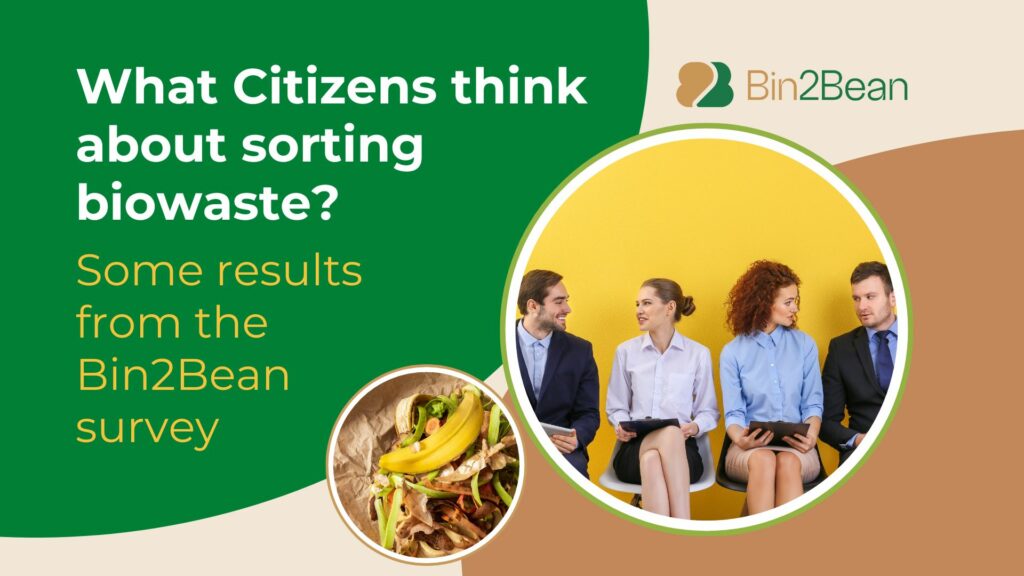In the first half of 2024, Bin2Bean launched an online survey targeting general European citizens. The aim was to gather inputs from a general audience regarding specific aspects involved in the separate collection of Biowaste.
The results are summarised here in 7 sections and help us to understand what are the triggering factors for certain behaviours. However we must bear in mind that 455 people from various EU countries answered the survey, thus it is not the most representative basis but seems to confirm other well established trends observed in other studies.
Awareness and knowledge
Out of the 455 Europeans surveyed, 95% of sorters (332 respondents) and 85% of non-sorters (123 respondents) agreed or agreed very much to the statement “It is important that citizens sort their bio-
waste”.
To the question “What information would you like to know about bio-waste sorting?” the first most selected answer (by 63% of sorters and 56% of non-sorters) is “Positive impacts of bio-waste sorting on the environment”. While 70% of non-sorters did not correctly estimate the share of bio-waste in their bin (which is 1/3), notably by overestimating it, this number drops to about 47% among sorters.
To the question “Does your municipality/region/country give you enough information about bio-waste sorting?”, the most selected answer was “enough” among sorters (41%), and “not enough” among non-sorters (37%).
Environmental Concern
Out of the 455 Europeans surveyed, environmental reasons are the most selected when asked “Why do you sort bio-waste?” 86% of sorters selected this kind of answer, highlighting a positive attitude towards environmental aspects that is translated into a real action.
Convenience
Among the non-sorters (123 respondents), to the question “What are the reasons why you are not sorting or stopped sorting your bio-waste”, 74% of all selected answers related to convenience, led by the lack of adequate sorting equipment (biobucket, dedicated bin, bags) and the lack of biowaste management systems.
Among sorters (332 respondents), to the question “What obstacles or limitations do you face when sorting your biowaste?”, 43% of all selected answers related to convenience, led by hygiene issues.
90% of sorters and 30% of non-sorters have a know access to a biowaste management system.
Trust in the bio-waste management system
Among people who have access to a bio-waste management system, 70% of sorters trust or rather trust it, while this number drops to 31% among non-sorters NORMS
The share of people agreeing or agreeing a lot to the statement “Other people (family, friends, neighbours) expect me to sort” was of 61% for sorters and 28% for non-sorters. Besides, 40% of sorters consider that they have been influenced by other people (family, friends, colleagues, neighbours) to sort bio-waste, and 52% consider that they have influenced other people to sort, in turn.
Implement fair and adjusted financial incentives (PAYT)
Out of the 455 Europeans surveyed, to the question “What do you think would encourage you to start or keep sorting your biowaste?”, 40% of sorters and 32% of non-sorters selected financial incentives, which ranked respectively 1st and 3rd (with regards to all possible answers).
Information
To the question “What information would you like to know about biowaste sorting?”, the main selected answers were: Positive impacts of bio-waste sorting on the environment and on my community.
What happens to my biowaste after it is collected Precise guidelines on what I can put in my biowaste bin/biobucket, and on how to optimise the quality of my biowaste sorting and minimize hygiene issues.
*Sorters and non-sorters had the same top answers, but in a different order.

